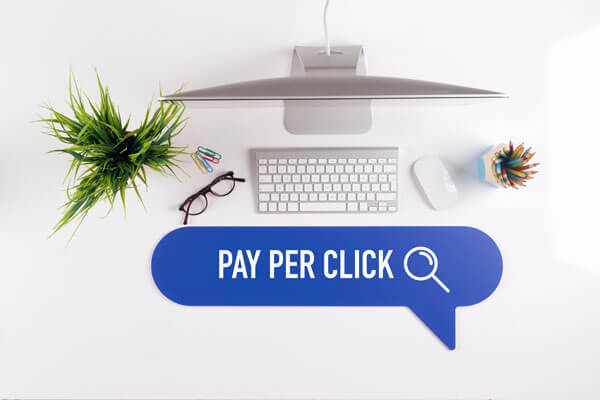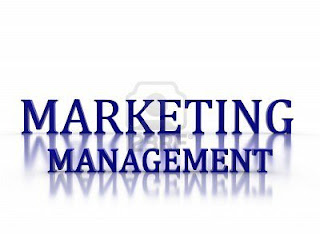What Is PPC? Understanding the Basics of PPC Pay Per Click In Digital Marketing.
Whether you are new to digital marketing or you are trying to promote your business using digital marketing, understanding PPC can help you achieve the goals of your digital marketing strategy. Here we will be discussing the meaning of PPC and its concept as well as steps to achieving great results using pay-per-click advertising.
First, let us start by defining PPC.
What is PPC?
PPC or pay-per-click is a type of internet marketing where advertisers pay a fee each time any of their ads is clicked. In other words, you only pay for advertising when your ad is clicked on. Rather than acquiring organic visits to your site, this is a way to buy visitors to your site.
Search engine advertising is one of the most popular forms of PPC, Where advertisers pay for their ads to be placed on sponsored links of a search engine. This works when a keyword related to their business offering is searched for.
Every time an ad is clicked, sending a visitor to our website, we pay the search engine a token. When PPC is working correctly, the fee is insignificant, because the visit to our site is worth more than the fee we pay. In other words, if we pay £2 for a click, but the click results in sales worth £400, then we’ve made about 200% profit which is really huge.
A lot goes into building a successful PPC campaign, from researching the right keywords to organising the keywords into campaigns and ad groups, to setting up PPC landing pages optimised for conversions. Advertisers who can create relevant and targeted pay-per-click campaigns are rewarded by search engines by charging them less for ad clicks. This means that if your ads and landing pages are relevant and valuable to searchers, Google charges you less per click, leading to higher profits for your business. If you want to start a PPC campaign, it is important to learn how to do it right.
Understanding Google Ads
In the whole world, Google Ads is the most popular PPC advertising system. The platform allows businesses to create ads that appear on Google’s search engine and other Google properties.
Google Ads operates on a pay-per-click model, where users bid for keywords and pay for each click on their advertisements. Every time a search is initiated by a user, Google searches the pool of Ads advertisers and chooses a set of winners to appear in the valuable ad space on its search results page. The “winners” are chosen based on a combination of factors, including the quality, usefulness, and relevance of their keywords and ad campaigns and the size of their keyword bids.
More specifically, who gets to appear in the search results is based on the advertiser’s Ad Rank, a metric calculated by multiplying two key factors – CPC Bid which is the highest amount an advertiser is willing to spend, and Quality Score which is a value that takes into account your click-through rate, relevance, and the quality of the landing page. This platform allows winning advertisers to reach potential customers at a cost that fits their budget. Essentially, it is a kind of auction.
Conducting PPC marketing through Google Ads is very valuable because, being the most popular search engine, Google gets high amounts of traffic and therefore delivers the most impressions and clicks to your ads. How often your PPC ads appear depends on which keywords you have selected. How successful your PPC advertising campaign will be is determined by a number of factors, however, by focusing on the below, you can achieve a lot: - Keyword Relevance – Researching and creating relevant PPC keyword lists and proper ad text.
- Landing Page Quality – Creating optimised landing pages with persuasive, relevant content and a clear call-to-action, tailored to specific search queries.
- Quality Score – Quality Score is Google’s rating of the quality and relevance of your keywords, landing pages, and PPC campaigns. Advertisers with better Quality Scores get more ad clicks at lower costs.
- Creative – Enticing ad copy is vital; and if you’re advertising on the display network, you can use a tool like our free Smart Ads Creator to create designer-quality ads that will demand clicks.
Keyword Research For PPC
Keyword research for PPC can be time-consuming, but it is also very important. The entire PPC campaign is built around keywords, and the most successful Google Ads advertisers continuously grow and refine their PPC keyword list. If you only do keyword research once, when you create your first campaign, you are probably missing out on hundreds of thousands of valuable, long-tail, low-cost, and highly relevant keywords that could be driving traffic to your site.
An effective PPC keyword list should be:
- Relevant
- Exhaustive
- Expansive
If you want to find high-volume, industry-specific keywords to use in your PPC campaigns, be sure to check out our popular keywords.
Managing Your PPC Campaigns
For your new campaign to be effective, you will need to manage them regularly. Regular activity on the account is one of the best predictors of account success. You should continuously analyze the performance of your account and make the following adjustments to optimize your campaigns:
- Add PPC Keywords: Expand your PPC campaign reach by adding keywords that are relevant to your business.
- Add Negative Keywords: Add non-converting terms as negative keywords to improve campaign relevancy and reduce wasted spend.
- Split Ad Groups: Improve click-through rate (CTR) and Quality Score by splitting up your ad groups into smaller, more relevant ad groups, which help you create more targeted ad text and landing pages.
- Review Costly PPC Keywords: Review expensive, under-performing keywords and shut them off if necessary.
- Refine Landing Pages: Modify the content and calls-to-action (CTAs) of your landing pages to align with individual search queries in order to boost conversion rates. Don’t send all your traffic to the same page.
Now that you have these guides, start creating your ad campaigns and ensure to apply each of these tips. Good luck!




Very helpful 👍
ReplyDeleteVery informative.
ReplyDeleteWe learn everyday, information is 🔑
ReplyDeleteBeautiful
ReplyDeleteVery informative
ReplyDeleteNice content, keep it coming
ReplyDeleteWow, I actually didnt know there's something such as PPC. I like this
ReplyDeleteThat's amazing 👍
ReplyDelete